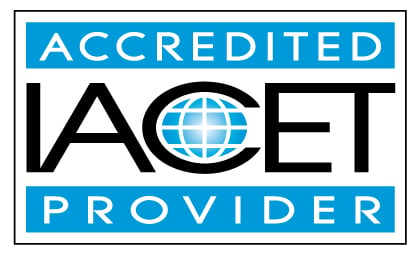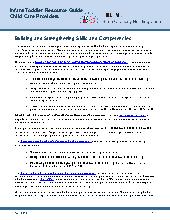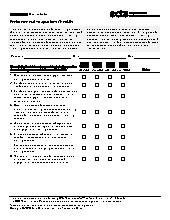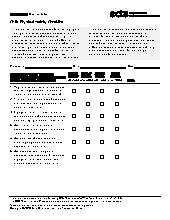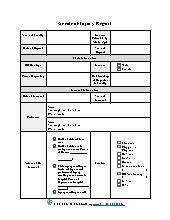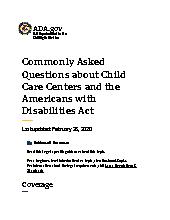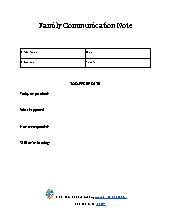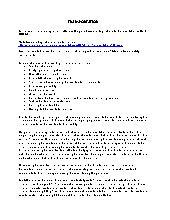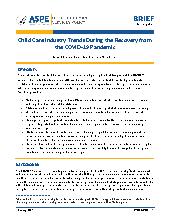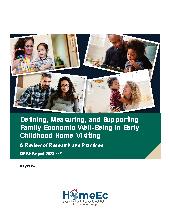18-Hour Family Child Care Renewal Training
Family child care providers in Maryland must complete 18 hours of training every year to maintain their program license. This online course fulfills that requirement and includes training specifically for mixed-age groups. Learn about child development stages, positive guidance techniques, and strategies to create a thriving learning environment for children of all ages and abilities. You'll also gain valuable skills for effective communication with families from diverse backgrounds.
*This is a Maryland specific training.*
By the end of this training, the learner will be able to:
- Describe the importance of monitoring the family child care environment for potential risks.
- Recognize the needs of individualized learning in family child care.
- Demonstrate understanding of brain development in young children.
- Identify tips and strategies for successful mixed-age group instruction.
- Demonstrate an understanding of the physical, emotional, and motor development in children five to twelve years of age
- Demonstrate the benefits of mixed-age grouping in early childhood education.
- Recognize the importance of a positive and respectful attitude in working with all children and their families.
- Identify ways to interact respectfully and appropriately in a variety of cultural contexts
- Identify resources for referral and specialized services.
- Describe the stages of emotional development in young children.
- Demonstrate an understanding of how to implement an Individual Education Plan.
- Identify different types of barriers for mixed ages with disabilities and ways to adapt curriculum to fit their needs.
- Demonstrate an understanding of how positive guidance promotes sound social and emotional development.
- Define the meaning of professionalism in child care.
- Define basic skills children should have when they begin kindergarten
- Demonstrate an understanding of how to implement an Individual Family Support Plan.
- Identify the signs of child abuse and neglect.
- Demonstrate an understanding of how chronic illness can affect development.
- Demonstrate an understanding of how to be open to new perspectives and diverse others.
- Identify stages and milestones of development for ages 1 to 5
- Give examples of tools that record and communicate critical information to other staff and families.
- Demonstrate an understanding of diverse perspectives, and navigate the ambiguity and complexity that comes with that.
- Identify the components of positive relationships with children, co-workers and families.
- Demonstrate communication skills that enable intercultural communication, including effective listening skills
- Define healthy practices to mitigate the spread of germs and decrease the likelihood of SIDS in infants and toddlers.
- Recognize the importance of problem solving and conflict resolution strategies with community members and families
- Recognize strategies for effective conferences with families.
- Demonstrate understanding of the research done on mixed-age group instruction.
- Explain the challenges behind mixed-age group instruction and strategies to overcome them.
- Give examples of activities considered appropriate for mixed-age groups.
- Criteria to earn CEUs:
- Certificates are awarded when the following criteria have been met by the learner:
- Class has been paid in full
- All material has been reviewed
- All review questions and final test have been completed with a passing score of 80% or higher.
- Learning Assessment Method:
- Learners will be assessed through questions after every section is completed. Learners will not be
allowed to proceed to the next section of the training until all questions have been answered correctly.
Learners will be presented with a final test composed of true/false and multiple choice questions.
Upon successful completion of the training, learners will receive their certificate by email.
- Learning Methodology:
- Online material will be presented in the form of slides,
accompanied with speech. Videos will be used to demonstrate ideas and concepts. Charts and tables
will be used for illustration.
- Logistics/Required Technology:
- A stable internet connection is required for the completion of this course. Users are highly encouraged to take their online course on Google Chrome on either a laptop or desktop computer. Speakers and/or headphones are also required to hear speech.
- Payment Policy:
- Payments need to be made in full. No refunds will be issued after starting the class.
- Proprietary or conflict of interest disclosure:
- Unless otherwise stated in the course description none of H & H subject matter experts and editor has any conflict or proprietary interests related to the material they prepared in this course.
- Support Services:
- Please visit our contact us page
You are purchasing a session of an online training that includes online assessments. Your certificate will be emailed to you once you pass the final exam with a passing grade of 80%.
Your certificate will bear the name you provided to us when you signed up. For support and questions regarding the material presented in this class please contact us at info@childcareed.com. Please consult our frequently asked questions page for other questions or feel free to contact us.
No prerequisites are required for the completion of this course.
Hours breakdown
3 CD/3 Cur/3 HSN/3 SN/3 Pro/3 ComTopics / Categories
Group AdminFamily Child Care Providers
Business Practices
Basic
Health, safety and nutrition
Curriculum and Environment
Professionalism
Child development
Community and Family
Special Needs
Latest Jobs
- New Training Requirements from Office of Child Care/MSDE
- Maryland Requirements for Becoming a Home Daycare Provider
- UNITED STATES OF AMERICA - Maryland
- UNITED STATES OF AMERICA - Alabama
- UNITED STATES OF AMERICA - Arizona
- Start Your Family Child Care Business TODAY
- UNITED STATES OF AMERICA - Delaware
- UNITED STATES OF AMERICA - District of Columbia
- UNITED STATES OF AMERICA - Georgia
- Looking for a Career Change?
- Maintaining your Family Child Care 18 hour Training Requirements in MD
- How to Start a Daycare with Success
- How to Start a Daycare with the Right Qualifications
- How ChildCareED is leading the evolution of child care education in Maryland?
- How Old Do You Have to Be to Work at a Daycare?
- Child Care Licensing in Texas: What You Need to Know to Stay Compliant
- CDA Classes Explained: Steps to Get Certified
- Child Care Licensing in Texas: Requirements, Updates, and Compliance Tips
- Shine Bright with Your Renewal! Why This 18-Hour Family Child Care Training Is a Must for You
- Renewal Requirements for Maryland Family Child Care Providers!

